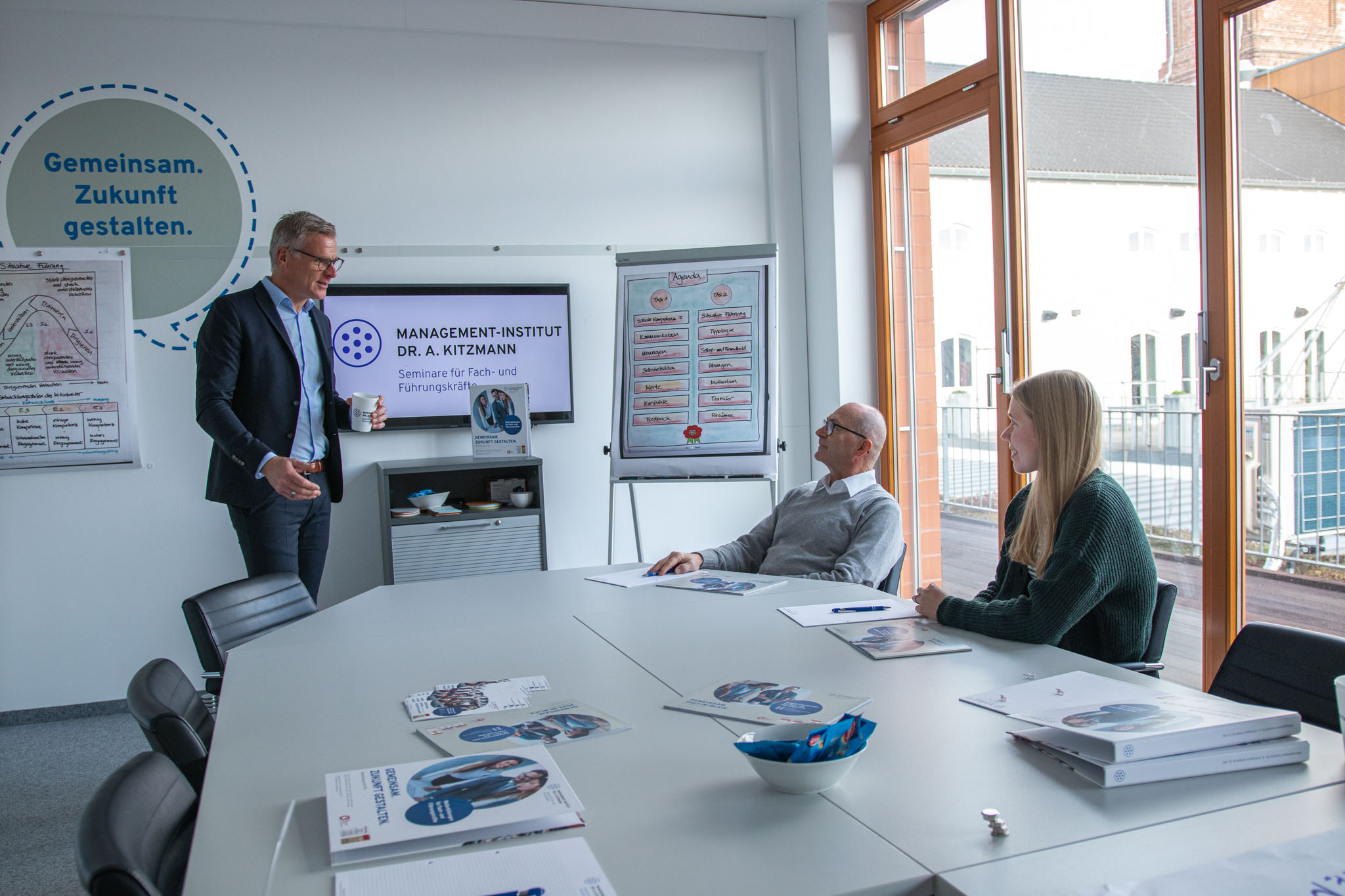
Lateral Leadership in Product management
In today’s working world, lateral leadership is becoming an increasingly important skill. This is especially true in companies that work in a project-oriented manner and rely on interdisciplinary collaboration.
In such contexts, leaders often take on responsibility without being formal superiors. This requires specific skills.
In this case study, we show how a tailored workshop helped the employees of an interdisciplinary product development team prepare effectively for their role as leaders without disciplinary authority.

The initial situation
An internationally operating technology company with a strongly project-oriented way of working was faced with the challenge of making collaboration between various departments more efficient.
In the interdisciplinary product development teams, project managers, technical experts, and process owners regularly assumed leadership responsibilities, without formally being superiors.
This type of leadership often led in practice to friction, unclear expectations, and a lack of commitment in decision-making.
The company was faced with a crucial question: How can lateral leadership be successfully implemented in such a complex project environment?
Company objective
The company’s goal was to specifically prepare employees with lateral leadership responsibility for their role.
The focus was particularly on strengthening the ability to communicate at eye level, to handle conflicts constructively, and to lead teams without formal power.
Special attention was given to the question of how to build trust and influence without relying on the authority to issue directives.
Approach
The training for lateral leaders was conducted as a compact two-day in-house workshop.
Mixed groups from various departments were brought together to expand understanding of the challenges of lateral leadership by incorporating different perspectives.
Case studies from the company’s own context were prepared and worked through in the training, allowing participants to reflect on their own real-life challenges.
The seminar combined proven models of lateral leadership with concrete tools for influencing, clarifying roles, and resolving conflicts.
The focus was always on providing participants with concrete approaches and solutions that they could apply directly in their everyday work.
Results
The evaluation showed: the participants felt strengthened in their leadership role.
Particularly positive feedback was given for the practical techniques for leading without power, the learning of clear communication, and the opportunity to reflect on their own cases in a confidential setting.
Subsequently, several of the participants became multipliers themselves to further promote a culture of lateral leadership within the company.
The training series is planned to be offered regularly for project managers in the future.